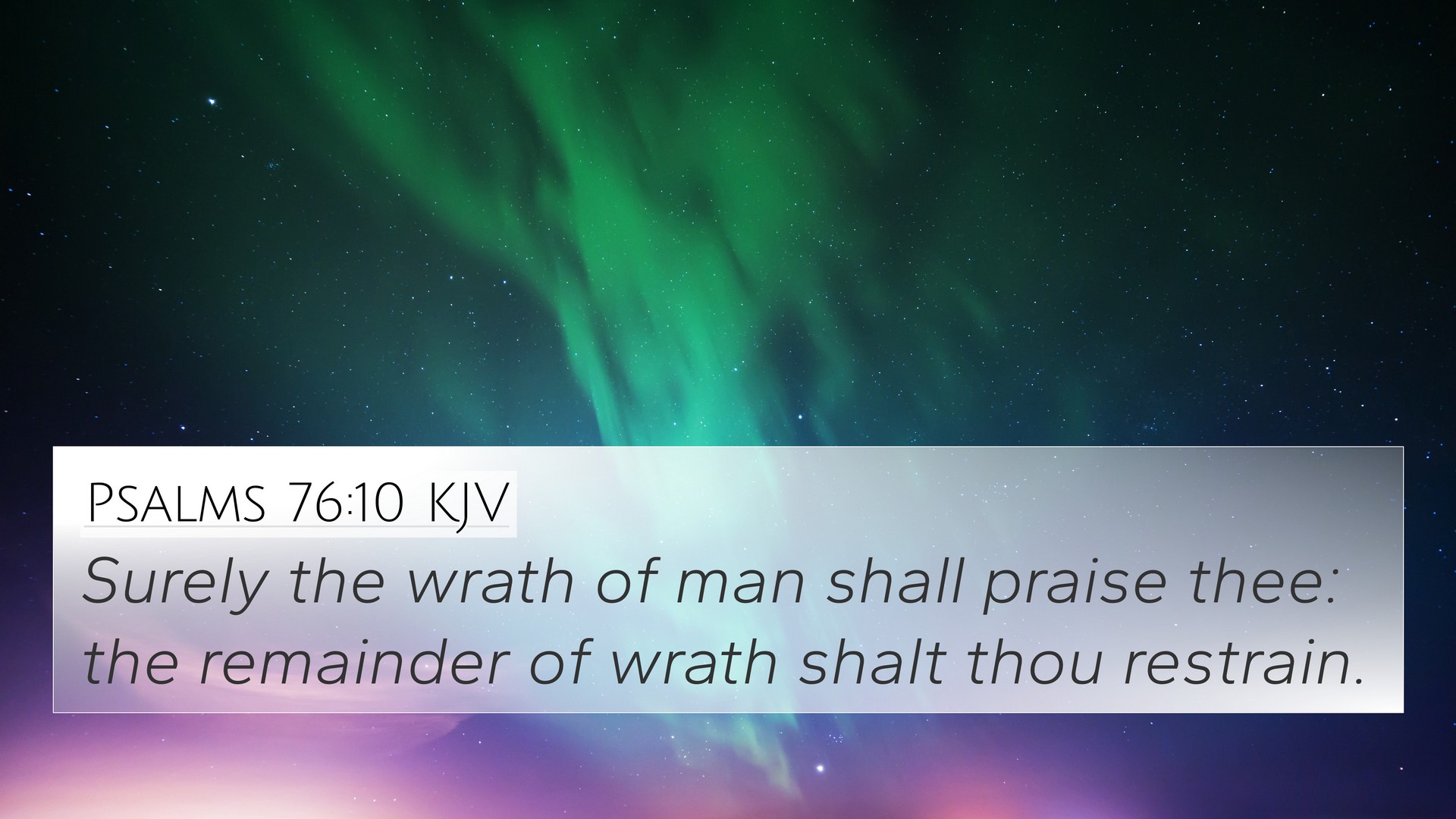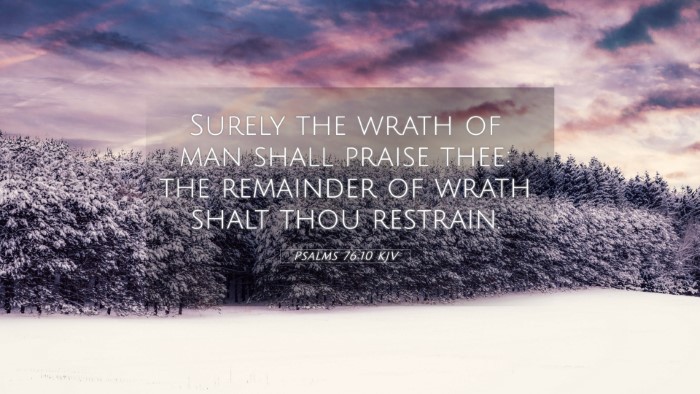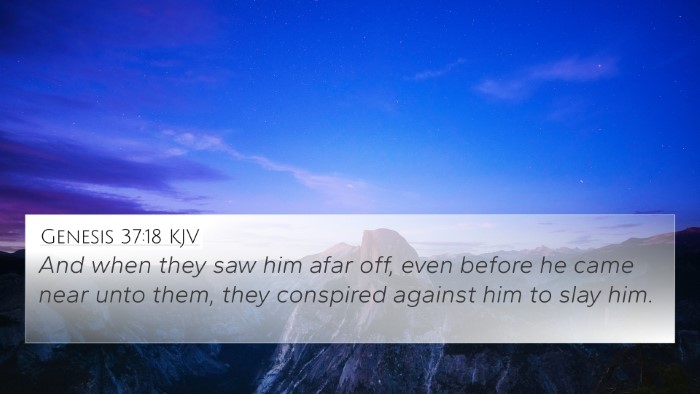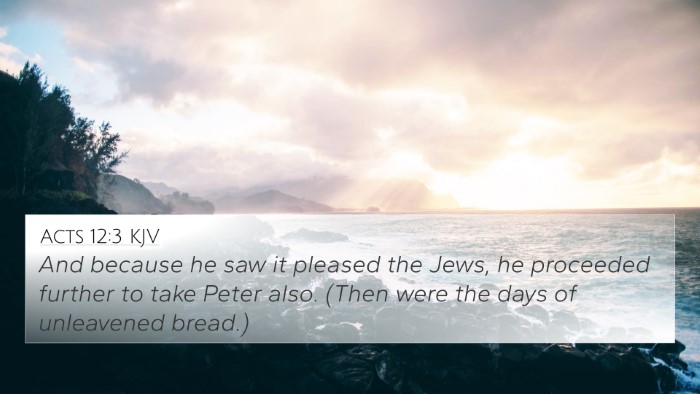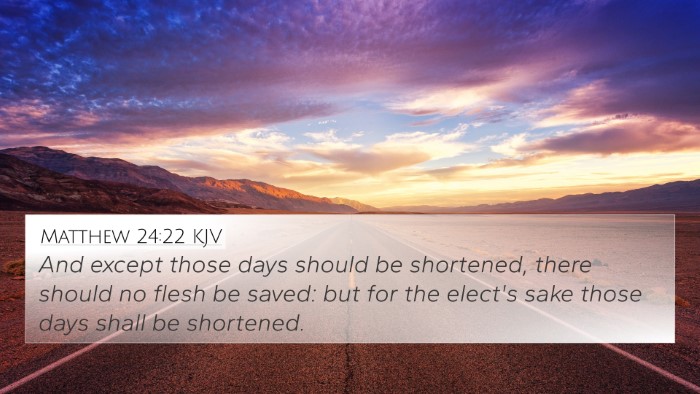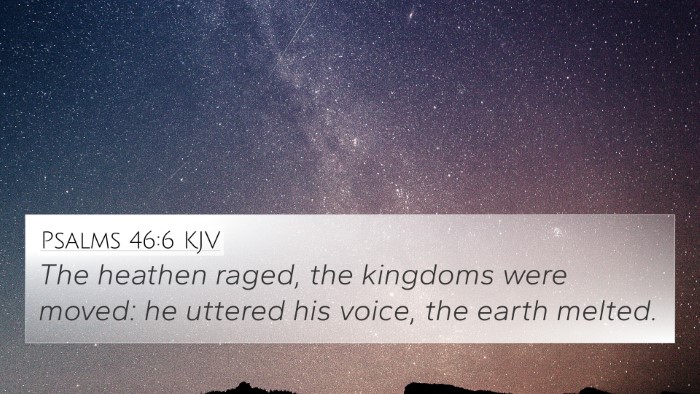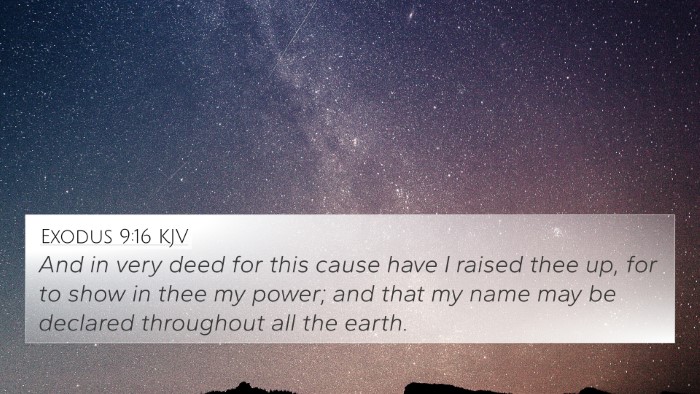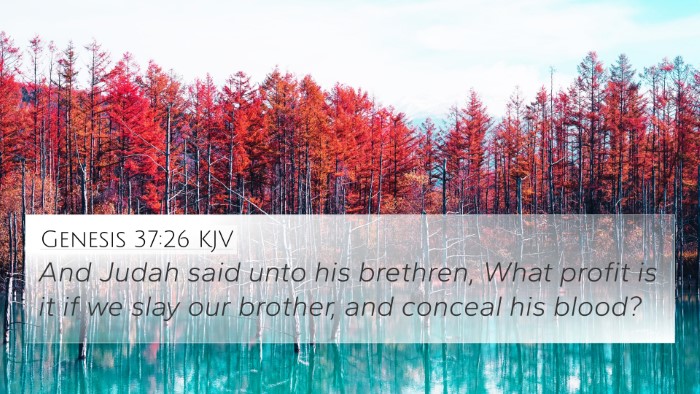Psalms 76:10 - Understanding the Verse
Bible Verse: Psalms 76:10
Verse: "Surely the wrath of man shall praise thee: the remainder of wrath shalt thou restrain."
Interpretation and Meaning
This verse is a profound declaration of God's sovereignty over human actions and emotions, even those that are wrathful or evil. It holds a dual meaning that suggests that all human responses, including anger, ultimately serve to glorify God. The verse also indicates that God has control over the excesses of human wrath, assuring us that His purpose will be fulfilled through all circumstances.
Combined Insights from Public Domain Commentaries
-
Matthew Henry: Henry emphasizes that God can turn the wrath of man into a means of His praise. He stresses that while humanity often feels anger or frustration, God is able to utilize these emotions to fulfill His divine plan, thereby showcasing His omnipotence.
-
Albert Barnes: Barnes sees this verse as a testament to how God can restrain human anger while still allowing it to bear witness to His greatness. He suggests that the limitations of human wrath set by God highlight His ultimate authority and power.
-
Adam Clarke: Clarke interprets the notion of "the remainder of wrath" as God's ability to keep human anger in check. He argues that while individuals may intend to react with hostility, God's will prevents them from fully expressing that rage, thus preserving the sanctity of His creation.
Cross-References and Biblical Parallels
This verse can be connected with several others to deepen understanding:
- Romans 8:28: "And we know that all things work together for good to them that love God, to them who are the called according to His purpose."
- Proverbs 16:7: "When a man's ways please the Lord, He maketh even his enemies to be at peace with him."
- Jeremiah 10:23: "O Lord, I know that the way of man is not in himself: it is not in man that walketh to direct his steps."
- 1 Corinthians 1:27: "But God hath chosen the foolish things of the world to confound the wise; and God hath chosen the weak things of the world to confound the things which are mighty."
- Psalm 119:91: "They continue this day according to thine ordinances: for all are thy servants."
- Job 5:17-18: "Behold, happy is the man whom God correcteth: therefore despise not thou the chastening of the Almighty: For He maketh sore, and bindeth up: he woundeth, and his hands make whole."
- Philippians 1:6: "Being confident of this very thing, that he which hath begun a good work in you will perform it until the day of Jesus Christ."
Connection to Thematic Bible Verse Analysis
When examining the theme of God’s sovereignty and control over human actions, Psalms 76:10 serves as a critical piece. It connects deeply with the overall biblical narrative which showcases that God can harness even negative human emotions to bring about His righteous outcomes. Such analysis can yield profound theological insights and elevate our understanding of God’s governance over history.
Tools for Bible Cross-Referencing
To facilitate the study of this verse and its connections, consider utilizing tools like:
- Bible Concordances
- Bible Cross-Reference Guides
- Cross-Reference Bible Study methods
- Bible Reference Resources
- Comprehensive Bible Cross-Reference Materials
Conclusion
Psalms 76:10 serves as a reminder of God's ultimate authority over human emotion and actions. By exploring the connections through cross-referencing with other scriptures, readers can gain a richer understanding of God's nature and His purposes. This verse encourages us to reflect on how our own emotions can contribute to the greater narrative of God's glory, even in the context of human strife.
Further Study Suggestions
- How to find cross-references in the Bible
- Identifying connections between Old and New Testament
- Comparative study of Pauline epistles
- Cross-referencing Psalms with New Testament teachings
- Bible cross-references for sermon preparation
